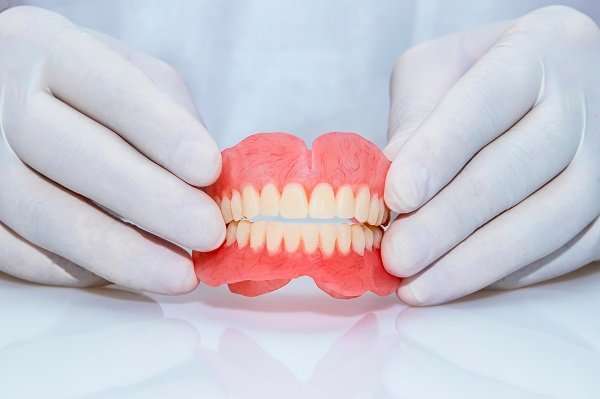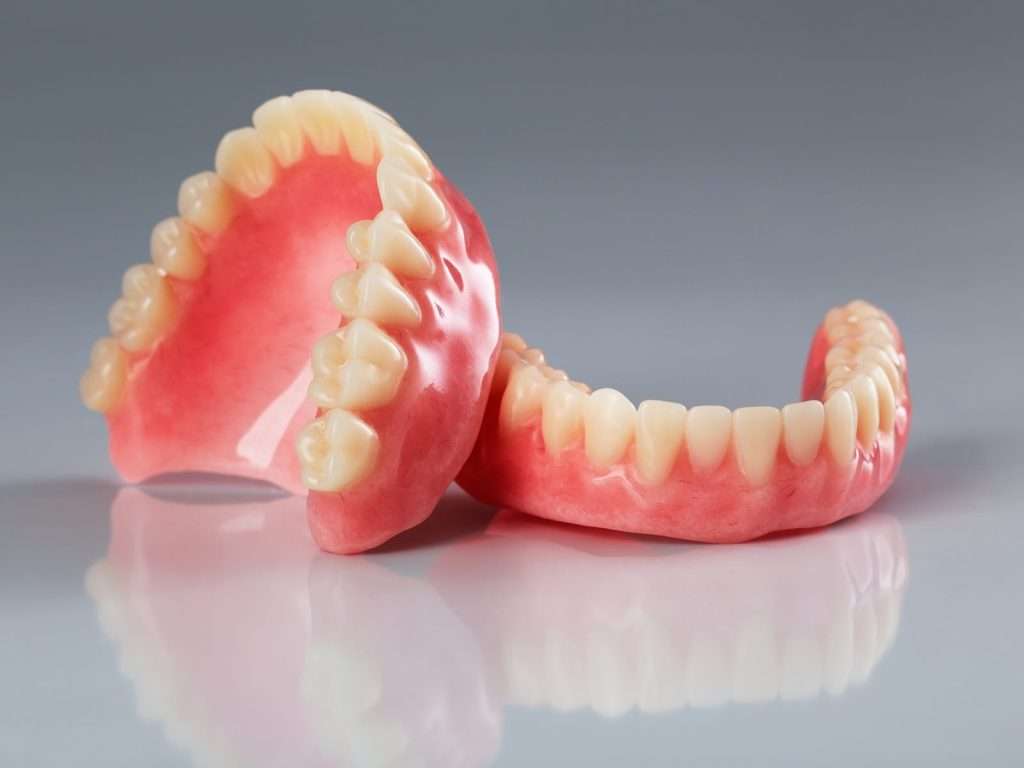
Denture
A denture is a removable replacement for missing teeth and surrounding tissues.
Two types of dentures are available — complete and partial dentures. Complete dentures are used when all the teeth are missing, while partial dentures are used when some natural teeth remain.
Complete Dentures
Complete dentures can be either “conventional” or “immediate.” Made after the teeth have been removed and the gum tissue has begun to heal, a conventional denture is ready for placement in the mouth about eight to 12 weeks after the teeth have been removed.
Unlike conventional dentures, immediate dentures are made in advance and can be positioned as soon as the teeth are removed. As a result, the wearer does not have to be without teeth during the healing period. However, bones and gums shrink over time, especially during the healing period following tooth removal. Therefore a disadvantage of immediate dentures compared with conventional dentures is that they require more adjustments to fit properly during the healing process and generally should only be considered a temporary solution until conventional dentures can be made.

Partial Dentures
A removable partial denture or bridge usually consists of replacement teeth attached to a pink or gum-colored plastic base, which is sometimes connected by metal framework that holds the denture in place in the mouth. Partial dentures are used when one or more natural teeth remain in the upper or lower jaw. A fixed bridge replaces one or more teeth by placing crowns on the teeth on either side of the space and attaching artificial teeth to them. This “bridge” is then cemented into place. Not only does a partial denture fill in the spaces created by missing teeth, it prevents other teeth from changing position. A precision partial denture is removable and has internal attachments rather than clasps that attach to the adjacent crowns. This is a more natural-looking appliance.
Can I Adjust or Repair Dentures?
After you get your dentures, you may need one or more follow-up appointments to get adjustments. Never attempt to adjust or repair dentures yourself. Never bend any part of the clasp or metal attachments yourself; this can weaken the metal structure. “Do-it-yourself” repair kits can permanently damage dentures, and over-the-counter glues may contain harmful chemicals.
Dentures that don’t fit the way they should can cause irritation and sores in the mouth and on gums. Be sure to call your dentist if a denture breaks, cracks, or chips or if one of the teeth becomes loose. They can often make the adjustment or repair the same day. For some complicated repairs, your denture may have to be sent to a special lab.
Have Any Question?
- +91 99872 38570
- support@domain.com


